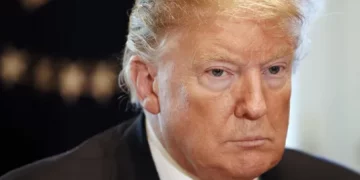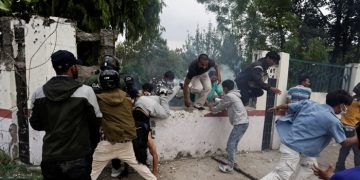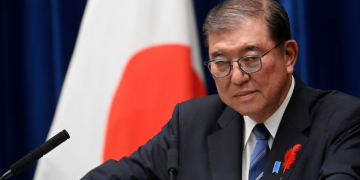FOCUS NATION Rama Chandra Panda
The British legacy continues to keep the police away from protecting the interests of the citizens
==
Police is a state subject in our Constitutional mechanism, which is still governed by the 1861 Police Act framed by the British government. During the British period, it was designed to strengthen the roots of colonial rule. Areas designated as districts and controlled by Superintendents of Police (SP) were twice as big as the area, at present, of a divisional IG. In fact, this post came into existence in 1839, much before the enactment of the Police Act, till when the SP was the sergeant major whose main task was to support revenue collection and protect feudal landlords who were like middlemen between the ruler and the subjects.
During those days, the duties of the police were to collect intelligence about public unrest as also other activities against the monarchy, and plan ways as to suppress civil unrest. As such, the police and executive magistracy were shaped not to serve the public but to act as instruments of coercion to glorify the British government. The Police Act that came into force in 1861 was also designed to protect and promote the interests of the colonial rulers.
By contrast, in the United Kingdom, the first and foremost task of the police force is to prevent crime and punish criminals. Thereby, police play the role of a servant of the citizens. The instruction to the first commissioners of the British Police read, “Every member of the force must remember that his duty is to protect and help members of the public no less than to apprehend guilty persons. Consequently, while preventing crime and arresting criminals, police must look upon himself as a servant and guardian of the general public and treat all law-abiding citizens, irrespective of their social position, with unfailing patience and courtesy.”
Though, from time to time and at every level of the civil society, the demand for reform in our police system is being made, little has been done. For the first time in post-Independent India, in 1977, the Janata Party government that came to power after the Emergency, appointed a commission to examine police reforms. It submitted five reports between 1979 and 1981, which are still gathering dust. The second report highlighted the need to make the police more professional and independent. It also recommended constitution of a statutory commission in each state to oversee and regulate police functions in ways as to make the police system an impartial agent of law.
The Supreme Court, 22 September 2006, laid down certain guidelines for police reforms while disposing of a case popularly known case Prakash Singh Vs Union of India, which inter alia stipulated formation of a state security commission, a transparent procedure for appointment of state police chief, setting up separate wings for investigation and law and order, and enactment of a new police act to replace outdated 1861 act etc. The apex court expressed its concern over the delay in enforcement of a model Police Act and asked the central government to take prompt action to prevent demoralization and politicization of the police personnel. The Court hoped that the states would “rise to the occasion and enact a new Police Act wholly insulating the force from any pressure whatsoever, thereby placing in position an important measure for securing the rights of citizens under the Constitution for rule of Law.” It further mandated various guidelines under Article 32, 142 to be operative till the new legislation was enacted.
A committee was set up by the government under the chairmanship of Dr. Soli Sorabjee with several experienced and enlightened personalities in September, 2005, which gave its report in October 2006 by preparing a model Police Act outlining the procedure for appointment of DG of Police etc. The model Police Act inter alia prescribed in Clause-16 establishment of two separate departments — one for collecting intelligence and another for criminal investigation (“expertise investigation of interstate, inter district and other specified offence”). It also outlined the appointment of special police forces with statutory protection to perform the same duties and responsibilities being subject to some authority primarily to encourage citizens to take up policing and become part of police system. The model act also provides for appointment of additional police (Clause 23) mostly on contractual basis to meet the ever-increasing private security of citizens, who are in need of the same and willing to pay the cost.
The other aspect of the model code relates to administration of police as provided in Chapter–V, which aims at making policing an “efficient, effective, responsive and accountable public service”. The other objective of the model code intends “to promote the professional efficiency of the police, to achieve rule of law.” The model act stipulates establishing a state police board to frame policy guidelines, preparing panels for appointment to the rank of DG, and evaluating the functioning of police etc. The crux of the matter is to promote professional efficiency.
In every state, as well as in the country, the home department controls and regulates police establishments, which are headed by officers from the IAS. The reluctance of civil service and political hierarchy in the states to leave the comfort of the police has led to a situation wherein the reform proposals are being kept in cold storage. Many state governments do not want enforcement of key provisions of model code of conduct, such as the police accountability commission, as enshrined in Clause 159 of the model act, which empowers the commission to inquire into allegations of serious misconduct against police personnel.
Along with insulating the police force from outside pressure, it should be ensured that with absolute independence, the police do not turn whimsical. As the saying goes, power corrupts, absolute power corrupts absolutely. Checks and balance should be firmly in place to ensure fair play and safeguard institutional integrity.
The writer is a former deputy speaker of Orissa Assembly. The second part of this article to follow.






































